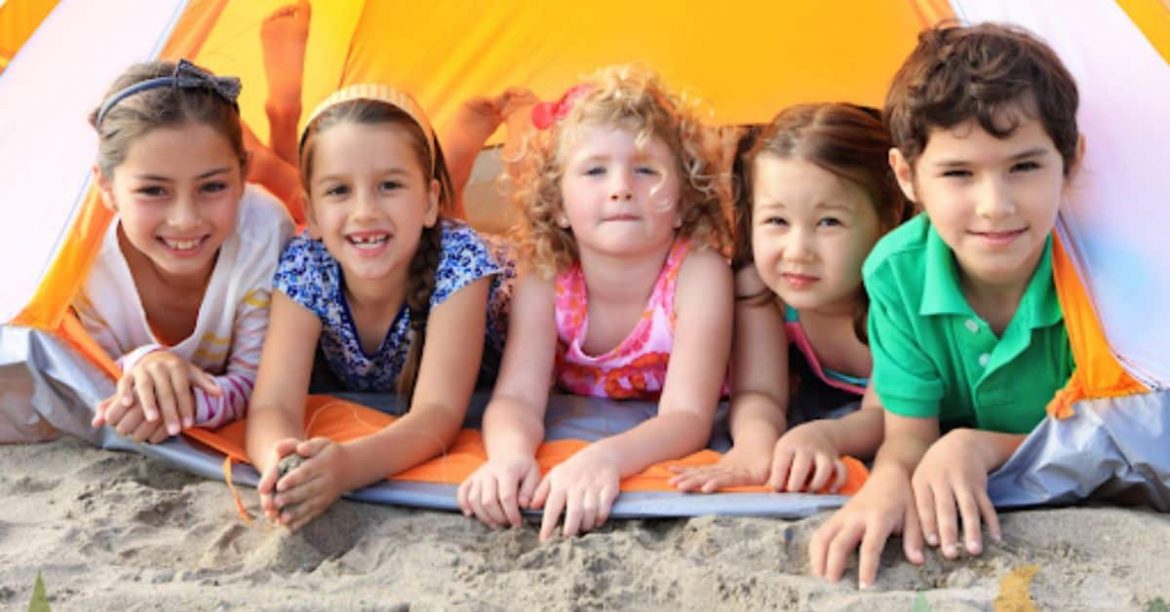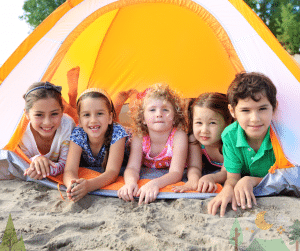

Does your child complain that he doesn’t have time to play? His repeated question is: “Why do I have to study too much?”. If so, your child may need rest and relaxation.
Every parent wants their child to be busy learning to have continuous development. However, rest and relaxation are important for children to regain sufficient energy for the next learning journey. Rest helps kids recharge and learn more next time.
This article will discuss why children need rest and relaxation, its benefits, and effective tips to give children a reasonable rest but they still develop in their best ways.
Why Do Children Need Rest and Relaxation?
Children lead busy lives, filled with school, extracurricular activities, and social interactions, which can sometimes result in stress and fatigue.

Children all need rest and relaxation because:
- It improves memory: While your children sleep, their mind practices what is known as “consolidation.” This time is essential because their brain manages and stores their memories. Rest and relaxation will also improve their brain health so they can better store their thoughts and memories.
- It reduces stress: There is no denying that children have a lot of energy! They can play all day while their parents are exhausted. However, children’s brains absorb faster and more than ours, so children are easily irritable if they do not get enough rest, leading to stress. Children need time off to slow down and recover from stress.
- It improves attention span: Concentrating can be challenging when children’s suffering from a lack of rest and relaxation. Whether at home, school or during day-to-day activities, having an improved attention span will help children focus and absorb new lessons more easily.
- It helps children become Physically Stronger: Getting enough sleep and having enough rest and relaxation will help kids regenerate energy and develop physically. It can also strengthen your children’s muscles, immune system and lead to physically stronger.
5 effective tips to encourage Rest and Relaxation for kids:
- Consistent Sleep Schedule: Ensure your child has a regular sleep routine, with age-appropriate bedtimes and wake-up times. A good night’s sleep is essential for their physical and mental growth.It is vital to ensure that the child’s sleep space is conducive to rest. Parents should dim the lights, keep the room at a comfortable temperature, and minimize distractions such as electronic devices or noisy toys. A comfortable mattress and soft bedding can also contribute to better sleep.A nap time during the day is also necessary for kids. Napping can help recharge their energy levels.
- Outdoor Play: Spending time outdoors in nature can have a calming effect on children. Let them play in the park, go for a nature walk, or simply enjoy some fresh air in the backyard.You can allow kids to engage in unstructured play, where they have the freedom to explore, imagine, and be creative without any specific rules or goals.Regular outdoor play and physical activity during the day help children expend energy, reduce anxiety, and improve sleep quality.
- Quiet Time: Rest and relaxation also mean setting aside a specific time during the day for quiet activities like drawing, coloring, or listening to calming music. This can be particularly helpful for introverted or highly sensitive children.Quiet time offers an opportunity to process your child’s emotions without external interruptions. It can help your child understand and manage his feelings more effectively.When his mind is at rest, he may find that creative ideas flow more easily. Quiet time encourages introspection and allows your child to explore his thoughts and ideas more deeply.
- Limit Screen Time: Too much screen time can be overstimulating for kids. We must limit screen usage time to protect our children from the negative effects of tech overuse. Screen time should be limited especially before bedtime.Instead, you encourage your child to spend time reading books. Your child may not be able to read yet and you can read it to him or show him the pictures in the book. Reading a good book by the window with natural sunlight is also a great way to relax for you and your kid!Or more simply, you can have a talk with your children, and encourage them to answer your daily questions. This will help them improve their language development by expressing their opinions.
- Playing musical instruments: Whenever he had trouble coming up with big theories, Albert Einstein, the German-American genius scientist, turned to playing the piano to clear his mind and regain focus.Many studies have shown that music not only enhances brain thinking, but also helps train patience, alertness, and clarity to solve all problems easily.You can introduce children to a certain musical instrument that they are interested in so that they can both enjoy and relax.

Conclusion
Remember that each child is unique, so it’s important to observe their preferences and adjust accordingly. Your children should still be given the opportunity to rest and relax every day, along with their learning.
For children, rest and learning should go together.
Encouraging rest and relaxation in children not only benefits their immediate well-being but also teaches them valuable skills for managing stress and maintaining a healthy lifestyle as they grow older.






